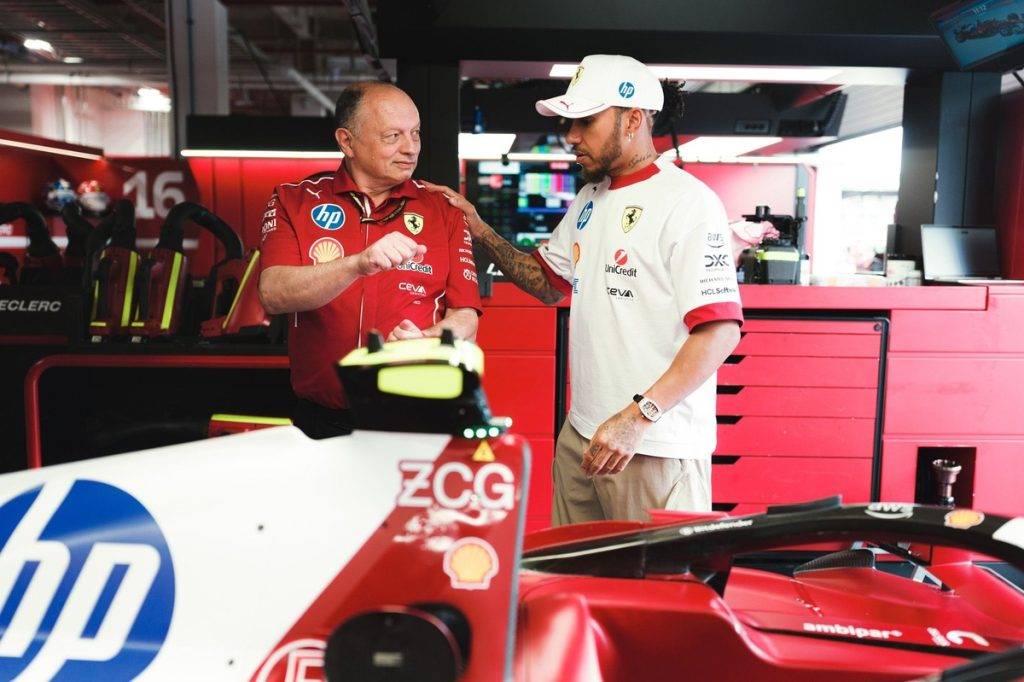Ferrari Chief Defends Strategy at Miami GP Amid Driver Frustration
Ferrari team principal Frederic Vasseur has staunchly defended his team’s decision-making during the Miami Grand Prix, amid criticism from drivers Charles Leclerc and Lewis Hamilton. Following the race, Vasseur acknowledged the drivers’ frustrations, but insisted that the team’s strategy was sound and aligned with Ferrari’s overarching goals.
A Controversial Call in Miami
During the race, Ferrari orchestrated a plan to swap Leclerc and Hamilton to maximize their chances against Andrea Kimi Antonelli of Mercedes. The intention was to enable Hamilton to leverage his medium tyres effectively. However, when it became clear that Hamilton was struggling to make significant gains, Leclerc was returned to his original position. Despite closing the gap, Leclerc was unable to mount a challenge in the final laps.
Drivers Express Discontent
Both drivers voiced their displeasure with the strategy. Hamilton felt decisions were made too late, while Leclerc expressed concerns over the potential threat posed by Carlos Sainz, a rival from Williams. Their criticisms reflect the competitive nature that drives elite athletes to expect prompt and effective team decisions.
Vasseur responded to these concerns, stating, “We have a general policy and we follow the policy. The issue at this stage of the race is to understand if the car behind is faster than the car in front, or if it’s just the DRS effect.” This approach underscores Ferrari’s commitment to a calculated strategy, even when it risks leaving drivers dissatisfied.
Understanding Race Dynamics
After discussions post-race, Vasseur reiterated that Ferrari’s objective is to prioritize its team strategy. He explained, “The radio transmission… we have to understand that it’s FOM that is managing the delay. Sometimes we are asking them something and you hear it live half a lap later.” Such delays can complicate crucial decision-making in the heat of the race.
Assessing Performance
Despite the criticisms, Vasseur maintains that the team executed their plan as well as possible under the circumstances. He acknowledged that while some may question the timing of the decisions, the context of ongoing race dynamics can make these calls challenging. “Honestly, I think as a team we did a good job,” he concluded, emphasizing that the responsibility lies in adhering to team policy.
A Learning Experience
Ferrari’s strategy in Miami has sparked debate within the F1 community, highlighting the delicate balance of team orders and driver autonomy. As the team moves forward, lessons from this event will be vital in refining their approach, ensuring both driver satisfaction and competitive performance in future races.
Key Points:
- Frederic Vasseur defends Ferrari’s strategy in Miami GP.
- Decision to swap drivers aimed at optimizing race performance.
- Both Leclerc and Hamilton expressed frustrations regarding timing.
- Team policies and race dynamics continue to shape Ferrari’s strategy.


